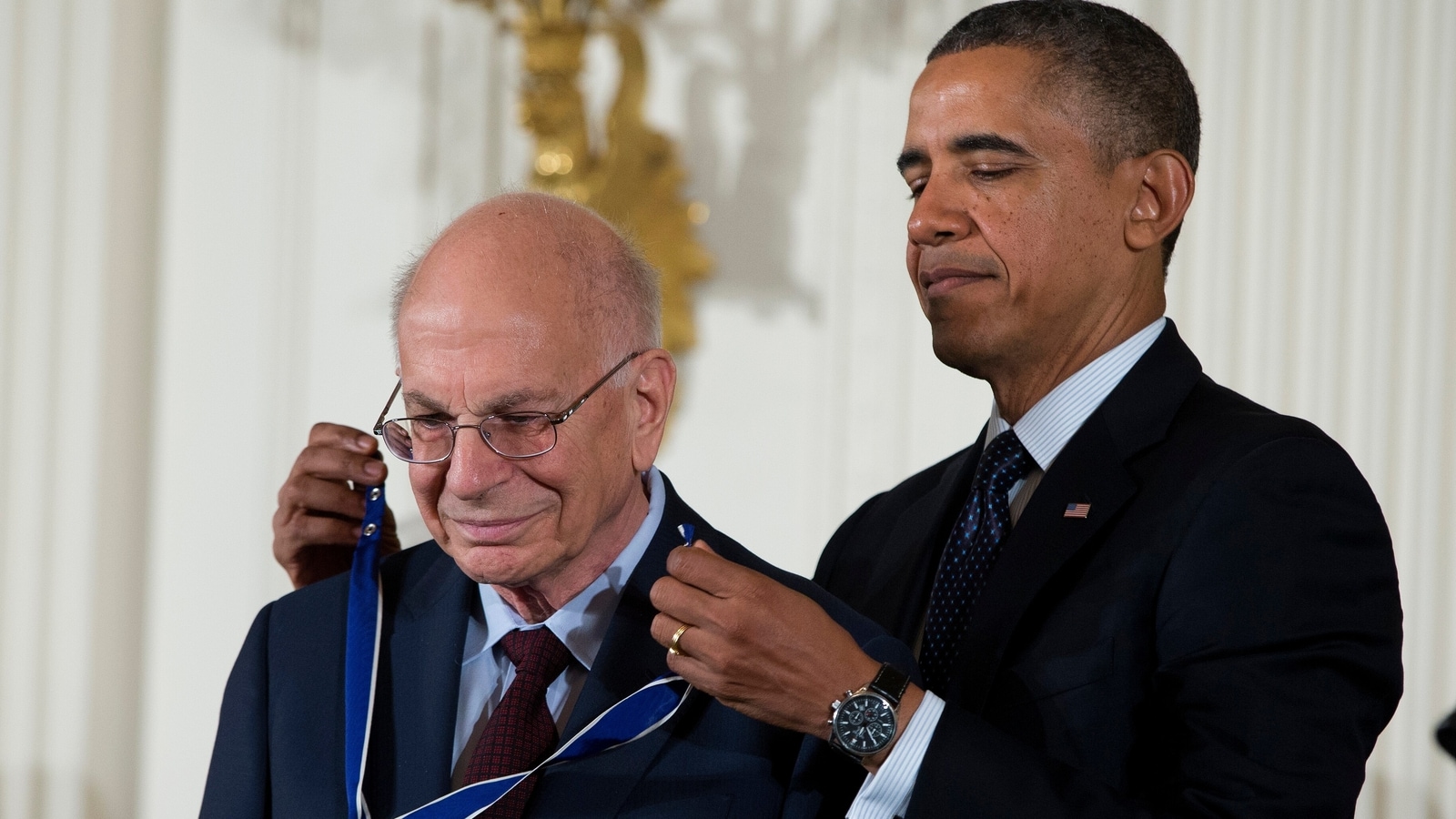Daniel Kahneman peacefully died on March 27. But he didn’t forget to impart sincerely worthwhile lessons before parting ways.
Best-selling psychologist and -winning Daniel Kahneman regrettably passed away on Wednesday, according to a press release from Princeton University. His partner, Barbara Tversky, also confirmed his demise. The 90-year-old Israeli-American author reportedly died peacefully. Although the cause of his passing remains unreported, his pioneering documentation of what most of us may be thinking is widely known and respected.

The Nobel laureate ironically won the high-ranking accolade for introducing the psychological-based branch of economics despite never officially being acquainted with the latter field of study. Upending the social science, debunked the vision of “Homo economicus” or “economic man,” a hypothetical figure representing unconditional rationality in the face of self-interest, through his ‘’ with Amos Tversky.
Kahneman deflated this notion, claiming people rely more on shortcuts that often lead to wrong decisions working against their best interests. Asserting people “are much too quick to jump to conclusions under some conditions and, under other conditions, they are much too slow to change,” he cited that instead of listening to their rational make-up, humans are “much too influenced by recent events.”
Targeting these insights from psychological research into economic science about “human judgement and decision-making under uncertainty,” Dr Daniel Kahneman secured the Sciences in 2002. Shattering several commonly held beliefs, the long-term associate of Princeton University spearheaded the new dawn of economics, giving its traditional counterpart a run for its money. Here are some of the Thinking Fast and Slow author’s most iconic quotes that will impel you to turn your line of thought on its head.
Some of the best Daniel Kahneman quotes
1. From Thinking Fast and Slow (2011): Many people are overconfident, prone to place too much faith in their intuitions. They apparently find cognitive effort at least mildly unpleasant and avoid it as much as possible.
2. From Well-Being: Foundations of Hedonic Psychology (1999): Money does not buy you happiness, but lack of money certainly buys you misery.
3. From an interview: By their very nature, heuristic shortcuts will produce biases, and that is true for both humans and artificial intelligence, but the heuristics of AI are not necessarily the human ones.
4. Courage is willingness to take the risk once you know the odds. Optimistic overconfidence means you are taking the risk because you don’t know the odds. It’s a big difference.
5. If people are failing, they look inept. If people are succeeding, they look strong and good and competent. That’s the ‘halo effect.’ Your first impression of a thing sets up your subsequent beliefs.
6. From Thinking Fast and Slow: Nothing in life is as important as you think it is when you are thinking about it.
7. From Thinking Fast and Slow: People tend to assess the relative importance of issues by the ease with which they are retrieved from memory—and this is largely determined by the extent of coverage in the media. Frequently mentioned topics populate the mind even as others slip away from awareness. In turn, what the media choose to report corresponds to their view of what is currently on the public’s mind. It is no accident that authoritarian regimes exert substantial pressure on independent media. Because public interest is most easily aroused by dramatic events and by celebrities, media-feeding frenzies are common.
8. Our comforting conviction that the world makes sense rests on a secure foundation: our almost unlimited ability to ignore our ignorance.
9. A reliable way to make people believe in falsehoods is frequent repetition, because familiarity is not easily distinguished from truth. Authoritarian institutions and marketers have always known this fact.
10. Friends are sometimes a big help when they share your feelings. In the context of decisions, the friends who will serve you best are those who understand your feelings but are not overly impressed by them.
